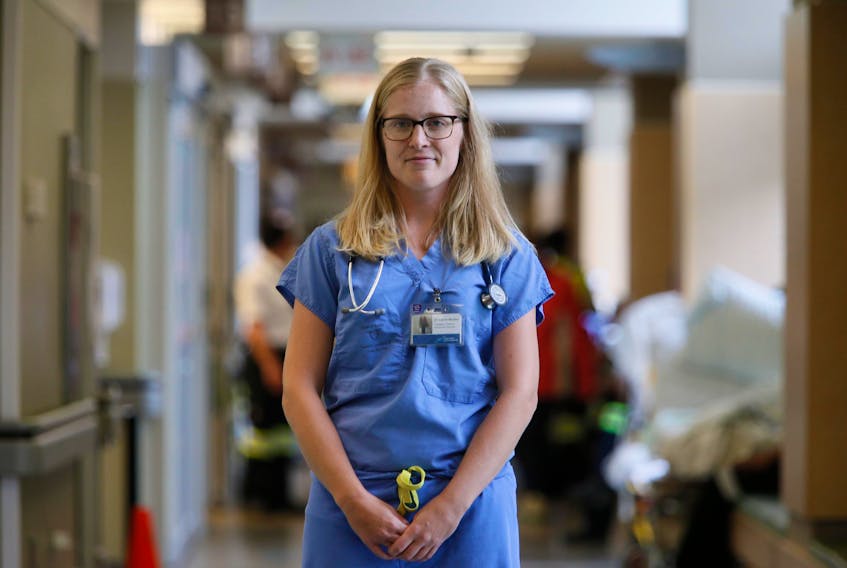EDITOR'S NOTE: A survey last summer concluded that most Nova Scotians believed they were less healthy but at the same time were feeling less stress compared to two years ago. That conversation prompted us to look into the issue of stress in our lives, specifically those jobs that might be considered higher on the stress scale. We spoke to a Mountie, an emergency doctor and a taxation specialist for this series.
Physician, heal thyself.
It’s an old chestnut that’s coming back into vogue amid increasing pressure on the health-care system and burnout among doctors.
“There’s been a lot of movement in medicine in the last two to five years, particularly within (emergency medicine) and within all the specialties,” said Dr. Laurel Murphy, who heads the Halifax Infirmary emergency department’s wellness committee, in a recent interview.
“It’s kind of just in the infancy stages right now in our group but the point of the wellness committee is to try and kind of identify things that affect wellness and job satisfaction of the emerg docs in our group and try to make the changes that make it easier to deal with some of the things that we (face).”
The first step in tackling this problem is nailing down exactly what employment burnout means. Murphy referred to the Maslach Burnout Inventory created by American social psychologist Christine Maslach.
One of the big red flags is known as depersonalization, said Murphy, 36, who has worked in emergency medicine for 10 years.
“You kind of lose your interest in the job, you no longer feel satisfied at work. You no longer feel that you want to come in and interact at work.”
That kind of mental space carries dangers not only for the doctor herself but for her patients.
“Patients treated by physicians who are burned out tend to have worse outcomes, and physicians who are burned out have higher rates of suicide, depression, divorce, alcoholism, all these terrible outcomes.”
While the typical image of a burned-out physician is the older family doctor who’s had enough of the stressful workload, burnout tends to affect more younger doctors, said Murphy, who is the mother of three young girls.
“I find it tricky to balance the demands of academic medicine (clinical work, teaching, attending rounds and meetings, research, mentoring, etc.) with the demands of family,” she said in an email after the initial interview.
“Trying to be there for at least some school drop-offs and pick-ups, trying to make it for most of the school concerts and parent-teacher interviews, being around for at least part of the day when someone is sick.”
She calls emergency medicine “a weird job in that the schedule is not consistent from day to day or week to week. Obviously the place needs 24/7/365 coverage, so our shifts start at all hours of the day and night.”

Some days she starts work at 4 a.m., other times at 11 p.m.
Amid this gruelling schedule, of course, an emergency doctor is expected to save lives as a matter of routine.
While losing a patient is obviously tough, Murphy said it’s the more mundane challenge of dealing with people’s expectations that takes its toll on a doctor’s psyche.
“People who want immediate care, which is understandable, but it’s not something that’s always feasible in our health system,” she said. “We see a lot of bad stuff in emergency medicine and that’s hard but also it’s just as hard if not harder for many of us, if patients being upset with us because we can’t offer them whatever they think they need.”
A doctor can put up with stress and anxiety caused by these daily challenges up to a point and then suddenly they’re in crisis.
Murphy’s wellness committee has created a list of resources in order to quickly provide assistance.
Sometimes just the collective support of colleagues can be helpful, she said.
“We’re focusing a little bit more on getting out as a group, although it takes effort, it takes another night away from your family or whatever to go do something. . . . We’re starting to look at more things like volunteering as a group and looking at our schedule to see if there’s something we can improve.”
Related:









